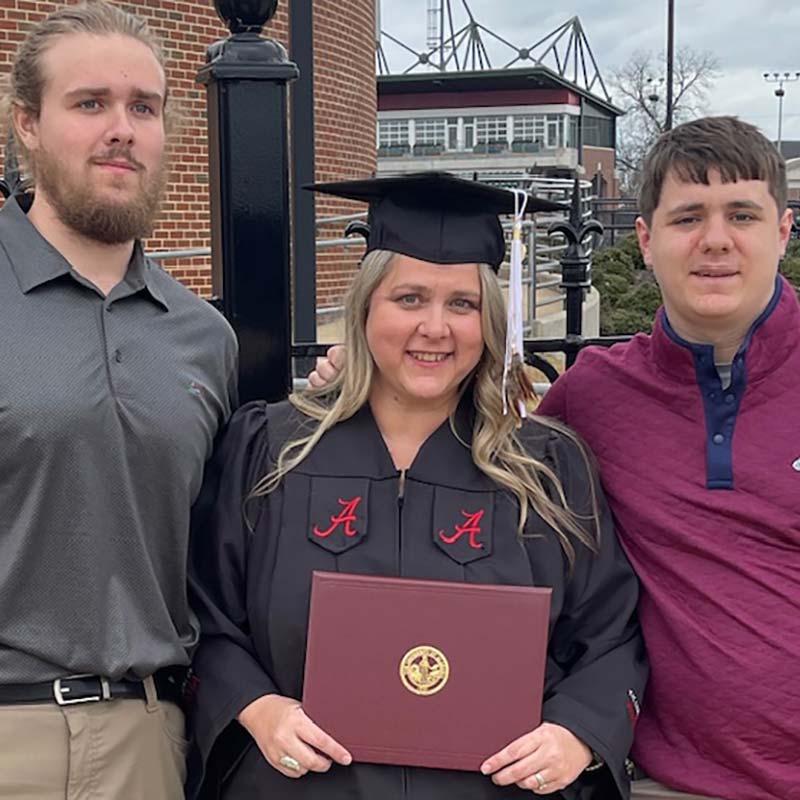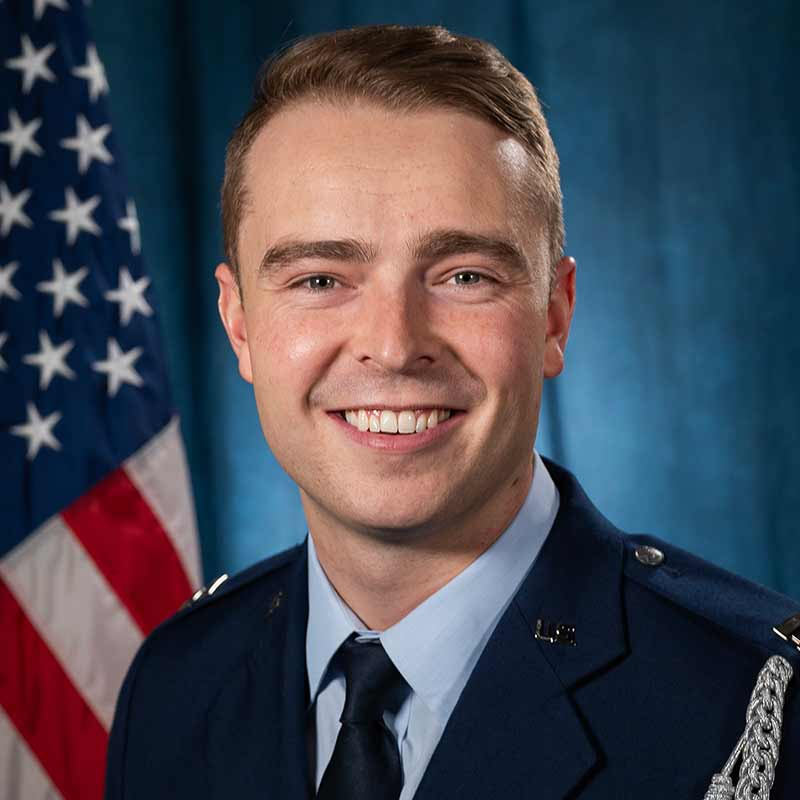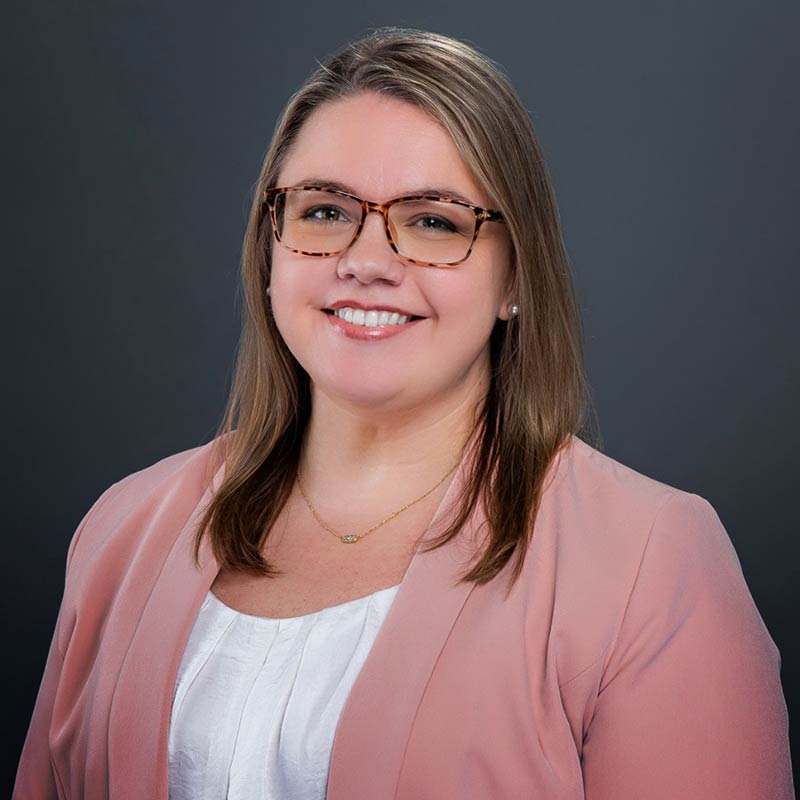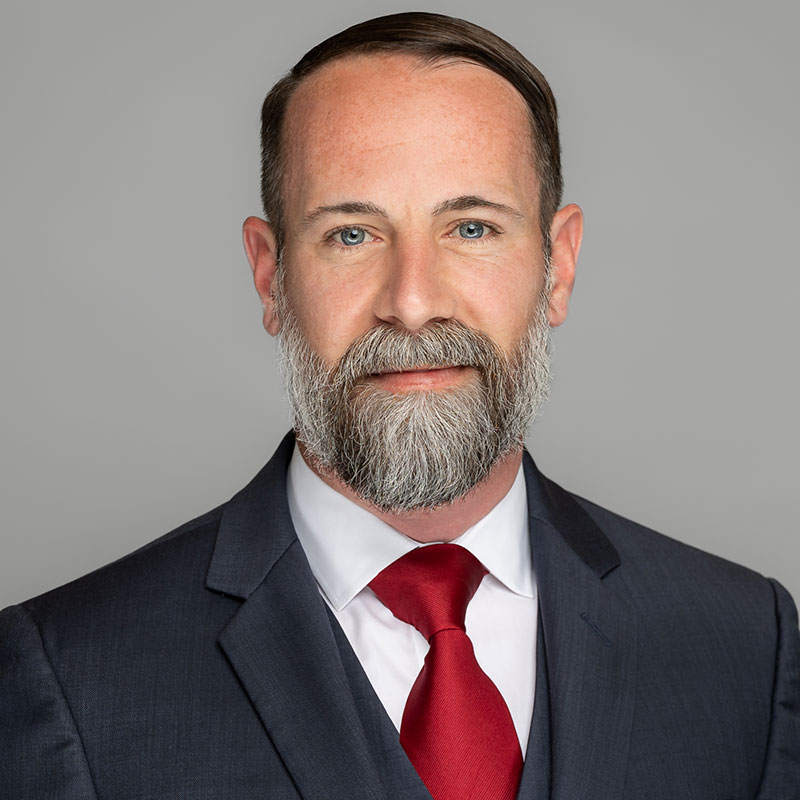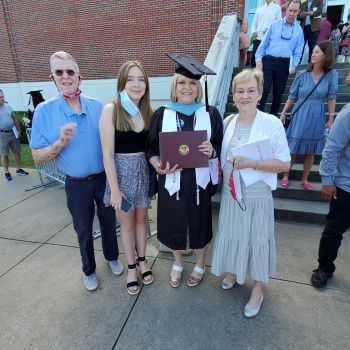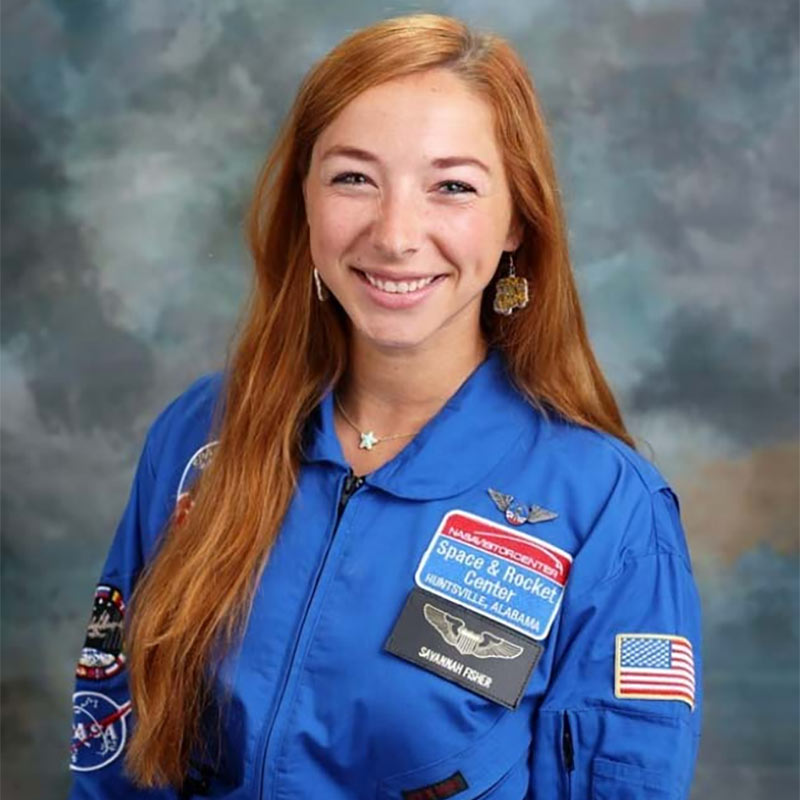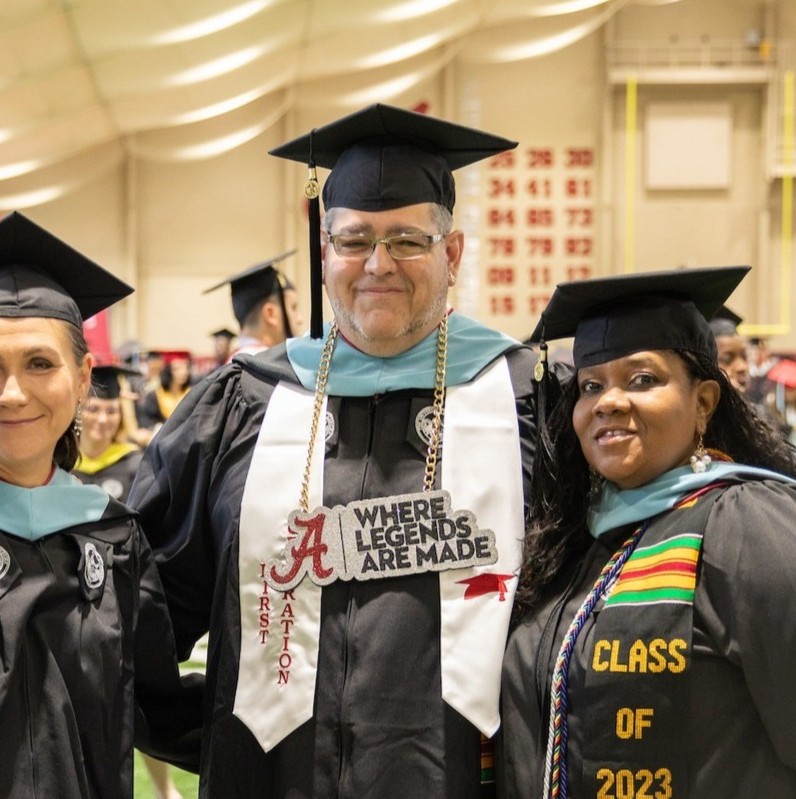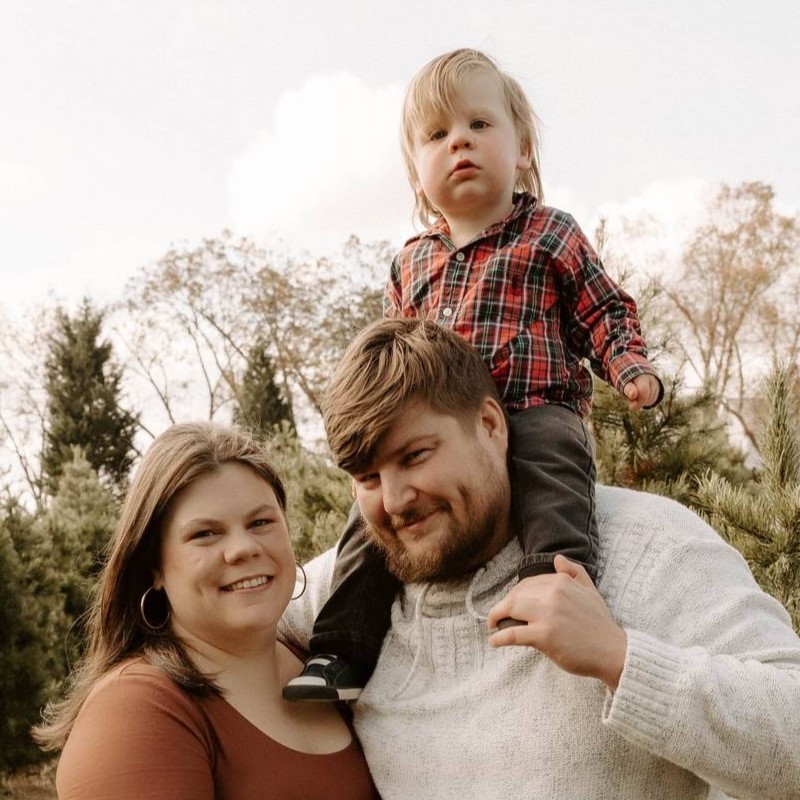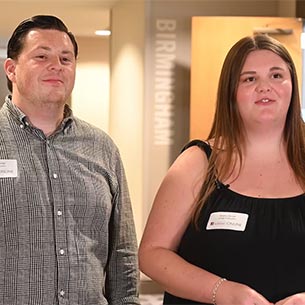Program Overview
Since 1965, The University of Alabama School of Social Work has been preparing Master of Social Work students to make a difference in the lives of others. Thanks to this innovative, primarily online program, you can earn this premier MSW while maintaining your other commitments.
Primarily Online Program Format
42-60 Credit Hours
$480 Tuition Per Hour
All Work is Social Work
Join our community of alumni serving clients across our state, nation and world when you earn this degree. Accredited by the Council on Social Work Education, our primarily online MSW will equip you for a rewarding career in social work.
The MSW program includes online coursework, virtual skills labs and a practicum education placement. UA offers two options for earning your MSW: the Advanced-Standing Program and the Traditional Program. The MSW Program curriculum emphasizes Advanced Generalist Practice ensuring our graduates can concurrently address complex situations within and across multiple levels and systems. The Traditional MSW is open to all undergraduate degrees, while the Advanced-Standing Program is for those who hold a CSWE-accredited BSW degree.
| Application Deadline | Advanced Standing Program Deadline is February 15 for summer admission Traditional Program Deadline is April 1 for fall admission |
| Application Priority Deadline | Advanced Standing Priority Deadline: November 1; Traditional Prioirty Deadline: December 1 |
| Accreditation | Council on Social Work Education (CSWE) |
| Orientation Required | Yes |
| Practicum and Skills Lab | Yes |
| Scholarships and Grants Available | Discover a range of scholarships and grants to support your educational journey |
Curriculum
The MSW Program at The University of Alabama offers an innovative and engaging curriculum designed to equip our graduates with advanced knowledge and skills to address the complex social issues of the state, nation and the world. Our Advanced Generalist Practice approach ensures that students can address issues at all levels of social work practice helping individuals, families, groups, organizations and communities.
Please note that courses are subject to change.
Advanced Standing Program
The Advanced-Standing Program is a 42-credit-hour program for only those who hold a CSWE-accredited BSW. It can be completed in three semesters when pursued full-time. One cohort of Advanced-Standing students begins every year in late May for the summer term. Applications are due by February 15, with a priority deadline of November 1 for consideration for SSW scholarships. Advanced-Standing students will complete 500 hours of in-person practicum education with online coursework and skills labs. Courses with an asterisk (*) indicate a skills lab.
Summer Semester (12 hours)
- SW 502 Foundations of Social Welfare Policy
- SW 512 Advanced Generalist Practice I: Components of Social Work Practice*
- SW 571 Social Work Research
- SW 576 Diversity, Oppression and Anti-Racism
Fall Semester (15 hours)
- SW 530 Advanced Generalist Practice II: Psychopathology & Differential Diagnosis*
- SW 531 Advanced Generalist Practice III: Mental Health Intervention Across the Lifespan*
- SW 584 Social Work Leadership and Management
- SW Elective Cluster Area
- SW Elective Cluster Area
Spring Semester (15 hours)
- SW 580 Advanced Policy Analysis
- SW 582 Practicum
- SW 583 Seminar
- SW Elective Cluster Area
Traditional Program
Traditional MSW
The Traditional Program is for those who do not currently hold a CSWE-accredited BSW. It can be completed in two years when pursued full-time. One cohort of Traditional students begins every year in August for the fall term. Applications are due by April 1, with a priority deadline of December 1 for consideration for SSW scholarships. Traditional MSW students will complete 1,000 hours of in-person practicum education with online coursework and skills labs. Courses with an asterisk (*) indicate a skills lab.
Fall Semester (15 hours)
- SW 503 Human Behavior in the Social Environment
- SW 504 Social Work Practice with Groups*
- SW 505 Social Work Practice with Individuals & Families*
- SW 576 Diversity, Oppression and Anti-Racism
- SW 538 Seminar
- SW 592 Practicum
Spring Semester (15 hours)
- SW 502 Foundations of Social Welfare Policy
- SW 543 Social Work Practice with Communities & Organizations*
- SW 571 Social Work Research
- SW 539 Seminar
- SW 593 Practicum
Fall Semester (15 hours)
- SW 530 Advanced Generalist Practice II: Psychopathology & Differential Diagnosis*
- SW 531 Advanced Generalist Practice III: Mental Health Interventions Across the Lifespan*
- SW 584 Social Work Leadership and Management
- SW 574 Seminar
- SW 597 Practicum
- SW Elective Cluster Area
Spring Semester (15 hours)
- SW 580 Advanced Policy Analysis
- SW 575 Seminar
- SW 598 Practicum
- SW Elective Cluster Area
- SW Elective Cluster Area
Elective Clusters
Elective Cluster Areas
All MSW students receive training in Advanced Generalist Practice and will have the option to complete courses in one of three Elective Cluster areas.
Child Welfare Cluster Area
- SW 508 Social Work Practice in Child Welfare
- SW 509 Child & Adolescent Mental Health
- SW 516 Trauma-Informed Social Work Practice
Clinical and Behavioral Health Cluster Area
- SW 516 Trauma-Informed Social Work Practice
- SW 544 Substance Use and Social Work Practice
- SW 550 Innovations in Clinical and Behavioral Health
Policy and Advocacy Cluster Area
- SW 519 Community-Based Policy Advocacy
- SW 520 Legislative & Policy Advocacy
- SW 521 Juvenile & Criminal Justice Policy: Implications for Social Work Practice
Dual Degree Programs
MSW/JD Dual Degree Program
The goal of the dual-degree MSW/JD program is to offer comprehensive preparation to individuals interested in becoming leaders in their communities, their state, or the nation, as well as leaders in promoting and enhancing social justice and individual well-being, through interventions, advocacy, organizational management, and public policy. Students will acquire knowledge of legal and social work strategies that can improve the lives of individuals and groups, by understanding forensic social work, the justice system, domestic violence, child protection, human rights, and more.
Students must be admitted to each program before they will be considered to be students in the joint program.
Admission requirements for the proposed dual-enrollment program are those currently established for both the MSW program and the JD program.
MSW/MPH Dual Degree Program
Social Work and Public Health are perfect partners. This program offers students interested in a career in social work and public health an alternative to the existing course of study for two separate programs. Graduates of the MSW/MPH Dual Degree program will have the skills needed to pursue leadership roles in community healthcare settings, government agencies, and non-profit organizations.
The MSW/MPH Dual Degree Program allows students the opportunity to earn two graduate degrees, a Master of Social Work (MSW) and a Master of Public Health (MPH) in two academic years, including two summers. All MSW students, including advanced standing, may apply for entrance into this program. If both degrees are earned sequentially, the completion period is three and one-half years and may permit some overlapping of transferred MSW/MPH credits.
Students who choose this dual degree plan must first secure admission to the School of Social Work, and then separately apply to the Department of Health Care Organization and Policy, The University of Alabama-Birmingham School of Public Health, for admission to the MPH Program.
The MSW/MPH Dual Degree Program is coordinated between the School of Social Work at The University of Alabama in Tuscaloosa and the School of Public Health/Department of Health Care Organization and Policy, concentration in Maternal and Child Health Policy and Leadership at the University of Alabama at Birmingham.
Legendary Change Starts Here
Advanced Generalist Practice
This approach to social work practice is defined as the practitioner’s ability to simultaneously address complex situations within and across multiple levels and systems. This strength-based orientation incorporates core social work knowledge, skills, values and ethics preparing students to adequately assess and intervene at all levels of practice. Advanced generalist practice is differentiated from generalist practice in that it includes the complexity of the problem and context of service provision, has enhanced technical abilities and more refined direct and indirect skills. Through this new focus, paired with social justice and trauma-informed frameworks, our graduates will be able to competently engage in independent application of advanced social work knowledge, theories, skills, values and ethics into assessment and intervention at all system levels.
Elective Cluster Areas
Within our curriculum, students can can complete elective courses in the following cluster areas:
- Child Welfare
- Clinical Behavioral Health
- Policy & Advocacy
Admission
Application Deadlines
Advanced Standing MSW applications are accepted through February 15 for a summer start. Advanced Standing students must hold a CSWE-accredited BSW completed within the last ten years. Traditional MSW applications are accepted through April 1 for a fall start and are open to all undergraduate degrees.
Please see the MSW Program Admission Requirements and Application Instructions for detailed information on the application process.
Application Requirements
Applicants must have the following qualifications:
- Bachelor’s degree from a regionally accredited institution with at least a 3.0 overall GPA or a 3.0 average for the last 60 credit hours of coursework toward a completed degree.
- Advanced Standing: A BSW degree from a CSWE-accredited program with a GPA of at least 3.0 on a 4.0 scale. Additionally, a “B” average or better in all social work classes is required, with no more than one “C” in professional social work courses and grades of “B” or better in field education courses.
- Advanced Standing Conditional Admits: A BSW degree completed more than 10 years prior to MSW application should include a 1–2-page professional statement and 1–2-page technology statement, in addition to other application requirements. Students with a BSW and a GPA ranging from 2.50 to 2.99 or students who do not meet the specific social work grade requirements above may submit a 1–2-page academic success plan, in addition to other application requirements.
- Traditional Conditional Admits: Students who completed their most recent degree more than 10 years prior to MSW application should include a 1–2-page technology statement, in addition to other application requirements. Students with an undergraduate GPA ranging from 2.50 to 2.99 may submit a 1–2-page academic success plan, in addition to other application requirements.
- Academic transcripts from all institutions attended
- Three letters of recommendation
- Resume
- Statement of Purpose, which should address the following items over 4-5 double-spaced pages. Include a title and references page, following APA formatting requirements.
- What inspires you to pursue a graduate degree in social work, and what motivates you to enter the social work profession
- Describe your experiences or interests related to working with underserved or marginalized communities.
- Explain your understanding of social and economic justice.
- Discuss your personal strengths and qualities that demonstrate your potential to become a skilled and ethical social worker.
- Describe how you expect graduate-level education to differ from your undergraduate experience.
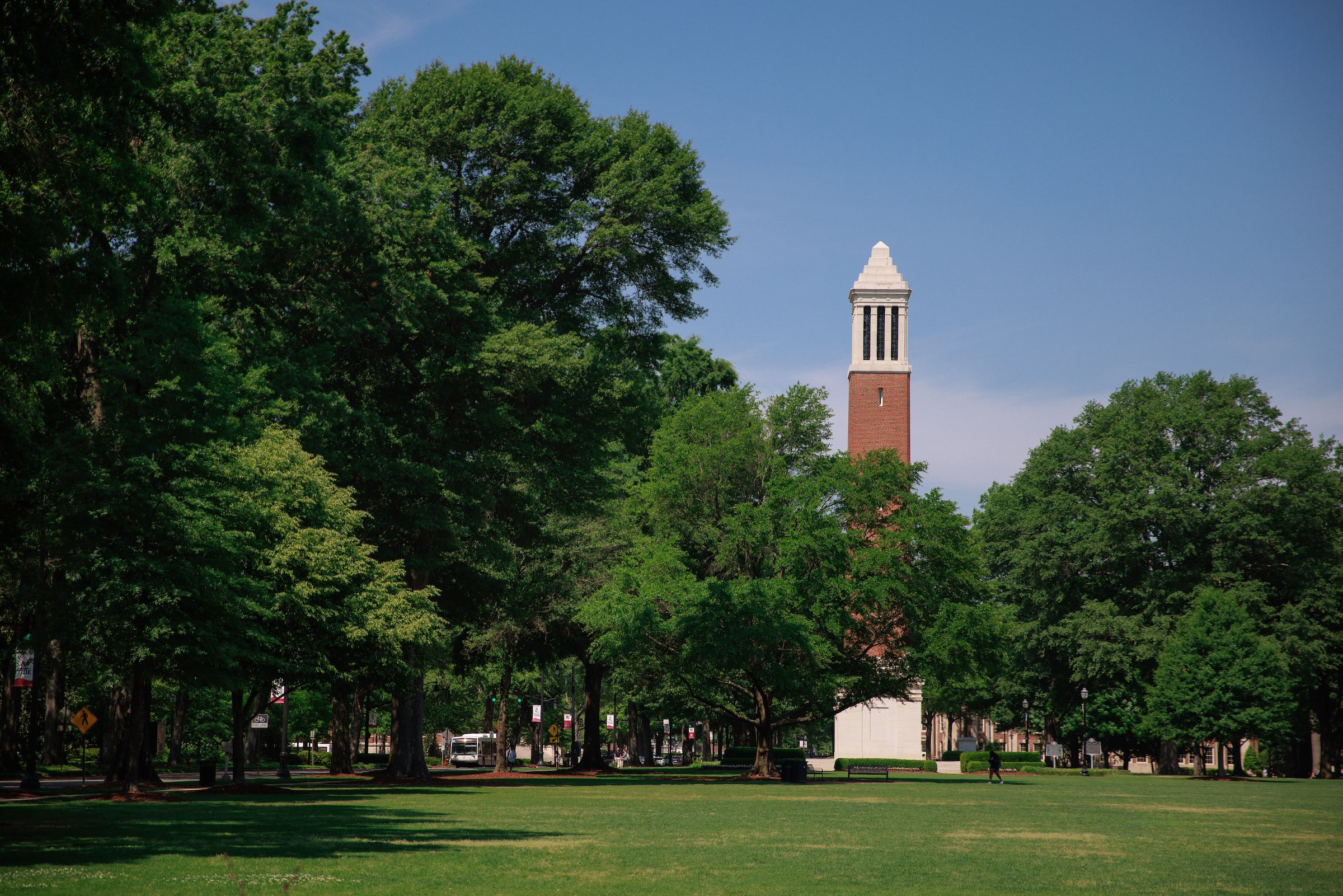

Student Spotlight
Inspiring stories of success from students and alumni.
Take a look at some of our UA Online stories.
-
Dawn Stephens
Devoted Mother
When Dawn Stephens determined it was time to finish her bachelor’s degree, she chose UA Online’s New College LifeTrack.
Read More : Devoted Mother to Full-Time Special Ed Teacher | BA in Interdisciplinary Studies -
Captain Ryan Jacobs
This Turtle Soars
A dedicated member of the United States Air Force who excels with honors wherever he lands.
Read More : This Turtle Soars | MS in Marketing Analytics -
Megan Brannan-Pierce
Q&A with Megan
We caught up with her to learn more about the exciting transformation of her career since graduation.
Read More : Q&A with Megan Brannan-Pierce | MA in Special Education – Gifted -
William Jones
Hunger and Heart
UA Online student William Jones built a bridge from his Master of Science degree to pursue Higher Education Administration.
Read More : Hunger and Heart | Redefining Leadership Through Education | Executive EdD in Higher Education Administration -
Janet Williams
Building Her Best Legacy
Janet Williams knew she could be an even better teacher to her fourth grade students.
Read More : Building Her Best Legacy | EdS in Elementary Education -
Savannah Fisher
Mastering Her Next Move
When Savannah Fisher was a busy undergraduate, she knew she’d soon be pursuing an MA in Elementary Education.
Read More : Mastering Her Next Move | MA in Elementary Education -
Noel Taylor
Pursuing Excellence
He embraced the academic rigor of his courses along with the camaraderie and companionship.
Read More : Pursuing Excellence and Carrying It Forward | EdS in Educational Leadership -
McKinsey Poole Threlkeld
Defining Her Passion
McKinsey thought she was supposed to be a middle school classroom teacher, but the COVID-19 pandemic gave her the space to take a step back.
Read More : Defining Her Passion, Delivering Compassion | MA in Higher Education Administration -
Matthew and Madison Barrett
Meet the Barretts
Matthew and Madison Barrett share their experiences as they balanced work, life and the pursuit of their graduate degrees with UA Online.
Read More : Meet the Barretts: A Shared Journey of Success at UA Online
Contact Us
Program Information
Katie Montgomery
Admissions Representative 800-467-0227
katelynn.bama@ua.edu
Admissions Information
UA Online
800-467-0227
online@ua.edu


